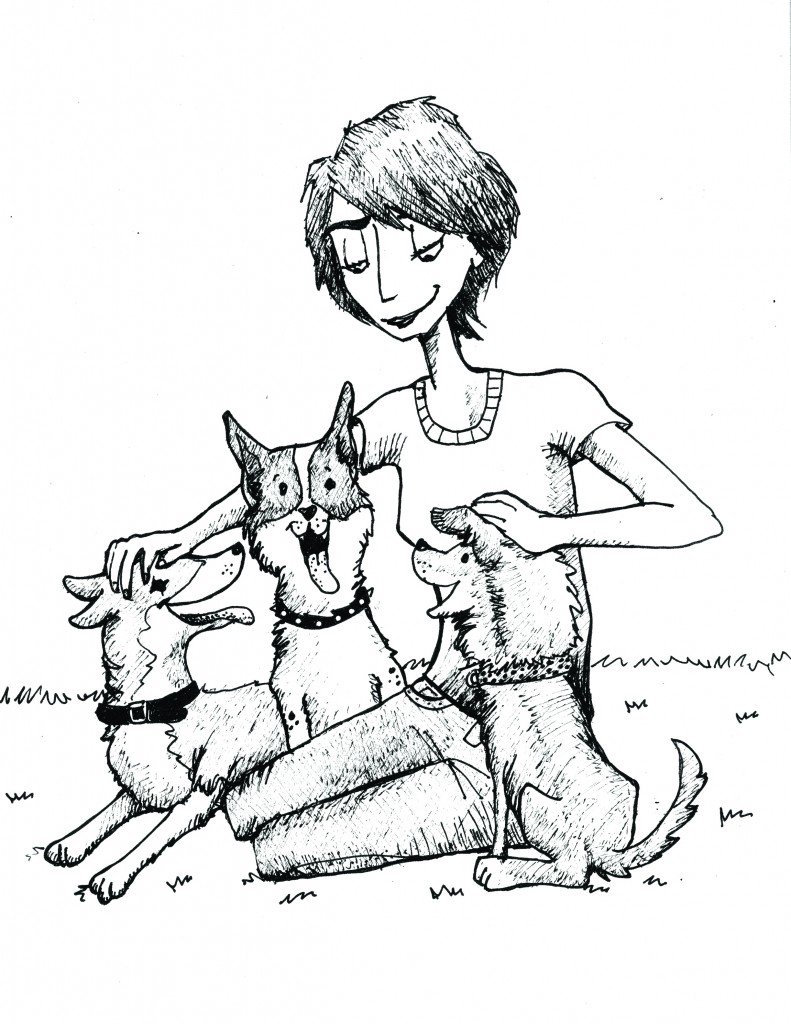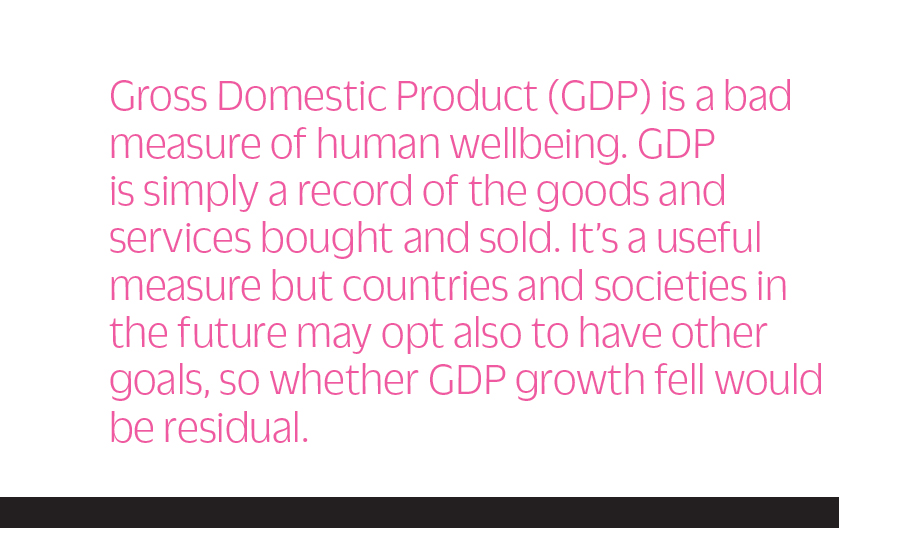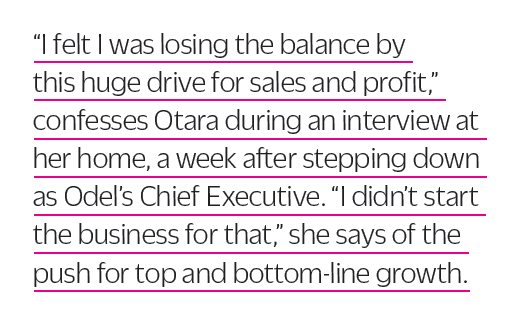50 Most Powerful Woman - #4 Otara Gunewardene
#4 OTARA GUNEWARDENE FOUNDER, Odel & Embark Optimisms about human nature Growth levels off as people or even nations approach frontiers of satisfaction. Expansionist monetary policy has failed over two decades to stir the Japanese economy to a growth path. While economists deduce why the Japanese are unwilling to step up consumption, sociologists may point out that the Japanese are no longer insatiable. John […]
#4 OTARA GUNEWARDENE
FOUNDER, Odel & Embark
Optimisms about human nature
Growth levels off as people or even nations approach frontiers of satisfaction. Expansionist monetary policy has failed over two decades to stir the Japanese economy to a growth path. While economists deduce why the Japanese are unwilling to step up consumption, sociologists may point out that the Japanese are no longer insatiable.
John Maynard Keynes predicted in a piece published in 1930, given reasonable expectations for economic growth, that human society would be rich enough by 2030 that they would have to work for no more than 15 hours a week.
Department store Odel’s founder Otara Gunewardene isn’t influenced by Keynesian notions of leisure in the future or the residual nature of GDP as a measure of human wellbeing, but explains that she has lost ‘balance’ in her life. Although it may seem like a progression of events, Otara says that she had no intention of exiting from Odel when she successfully courted Parkson Retail Asia in 2012 to invest in a 42% stake (after a mandatory offer Parkson’s now control 47% of the stock). She says Parkson, which operates upmarket department stores across many East Asian countries and China, offered the opportunity to grow the business when it happened. Parkson’s entry in to the Odel shareholder roll was structured as a new investment and existing major shareholders including Otara and her brother Ajit Gunewardene, had to take up a rights issue that returned back to Odel most of the money they had received for selling a stake.
However in September 2014 Otara and her brothers Ajit and Ruchi Gunewardene sold their collective 44.5% stake in the company to Ashok Pathirage controlled Softlogic Holdings PLC for Rs2.7 billion valuing the company at over Rs 6.1 billion rupees. Parkson, which owns 47% of Odel has announced it plans to exit the company when Softlogic announces a mandatory offer to buy out other shareholders.
Of the various motivations that drive people for Otara it wasn’t the prospect of a financial windfall that drove her but the need to regain ‘balance’ in her life. A number of developments took place since and because of Parksons becoming the largest single shareholder. Firstly pressure for growth and better margins quickly built up after Odel’s 2010 July IPO – that offered a 11.5% stake in the company through the issue of new shares – and then on the back of the Parkson’s investment in Odel. “You really get pushed to an extreme,” says Otara about the pressure for higher margins and topline growth. “You can lose sight and focus and having that balance is what I think is important,” she says about the overriding reason for her reason to sell out of a company that took her 25 years to build.
Odel is flushed with cash following a rights issue that raised Rs2.9 billion following the Parkson entry. It spent Rs800 million acquiring land around its flagship Colombo store and also set up new stores in secondary cities. New stores take a few years to break even and sales at existing ones were affected by a weak consumer sentiment for years. As a result margins were under pressure and Earnings Per Share (EPS) has more than halved to 70 cents in the 2014 financial year from Rs1.40 in 2011. Even after the EPS dilution following Parkson’s entry earnings per share have declined.
“I felt I was losing the balance by this huge drive for sales and profit,” confesses Otara during an interview at her home, a week after stepping down as Odel’s Chief Executive. “I didn’t start the business for that,” she says of the push for top and bottom-line growth. “I started the business to spread a social message and raise money to support causes related to animals and people. I felt I had lost that balance.”
Unlike industries that supply the global market, which are immune to local demand and actually benefit when they can hire cheap labour, Odel faced a difficult predicament.The type of lifestyle products on its shelves and experience it offered isn’t recession and mood proof. When things aren’t going so well, people don’t shop.
Secondly a change in tax regulations; the extension of sales tax to large retail establishments impacted margins because prices couldn’t be pushed up by the same amount. The sales tax introduction came without warning, “we couldn’t just shift prices up, it’s a competitive market and managing customer perceptions was also really important.”
Thirdly the Parkson Retail Asia leadership team in Singapore, where that firm is listed, also changed. Otara says the direction and the passion of the new team – which was overlooking a huge business – “was different”. While she continued as Chief Executive after Parkson’s entry, some things about the business changed, “it was more about numbers and profits and that’s one of the things I found difficult to adjust to. Not that I can’t, but because I’m emotional and passionate, it becomes that much more difficult.” It isn’t that Otara is irrational or irresolute. “Where business decisions are concerned, I am more rational than emotional; that’s how I was able to grow the business,” but adds “not everything is Rupees and Cents; you have to be passionate about some things.”
In a country that sourly lacks chief executives with star power Otara stands tall. Perhaps no other chief executive in Sri Lanka can claim their being, adds as much oomph to a brand as can Otara.Since Odel’s inception her fashion icon status has been rubbing off on the brand’s success. Her passion for fashion and retail made it possible for her to keep reinventing the business. However last year (2013) she was getting ‘disconnected’ from the business “that is why I made the decision to sell,” Otara confesses.
Despite the emerging disconnect it took Otara six months to figure for sure she wanted to sell the firm. When she did decide to exit, she initiated a process seeking out a buyer and believes Odel will be better off because of it. Others around her weren’t so sure. Her brother Ajit Gunewardene – one of the early investors in the company who knew of her obsession with the business and how much she had sacrificed for it–asked her,repeatedly, if she was ‘sure?’ Gunewardene also sold his 14.5% Odel stake to Softlogic at the same time as Otara. Their older bother Ruchi, who was also the firm’s Chairman before the sale to Softlogic, also sold his minor holding in the firm.
Those who knew her well also understood that once she made up her mind there was usually no going back. She plans to move out of her office at Odel as soon as she finds an alternative space to run the Embark brand she says, right after promising to return a call from Ashok Pathirage.
Despite stepping down, Otara has retained the Embark brand built around her pet pooches Niko, Bandit and Rozzy. Embark’s ethos now more closely matches her aims of building a business with a strong conscience. What started off as her pet project, has come full circle to occupy a central place in her future. Otara is eager to focus all her efforts on growing the Embark brand, which includes apparel, soft toys and other stuff created with her pet pooches as inspiration. “Although I don’t have a specific plan for the future of Embark, I have a vision in my head,” she explains. The bigger the Embark business grows the greater the impact she can have on animal related causes as part of the brand’s bottom line is dedicated for this.
Rather than depending on a step-by-step plan, Otara’s future now relies again on her gut feel. She feels a lot can be done with the Embark in product development and brand extension, perhaps even go international. “It has the potential, but I have to be ready for it,” she adds. Essentially she is now at the helm of a startup (Embark is a seven year old brand) much like she was with Odel two decades
ago. “Never had a detailed plan for Odel at first, but a vision about it. I would take it as it comes but it grew – a lot of gut feeling went in to that,” she confesses. “No one should ever lose the gut feeling and the vision, no matter what the numbers are.” Keynesian notions of leisure or the usefulness of GDP growth as a measure of human wellbeing, actually can’t explain entrepreneurs like Otara. While growth and finding a balance in life figure importantly in Otara’s career, there is an unquantifiable quality there. Perhaps economists need to invent a measure that subsumes everything, a measure for happiness perhaps.




